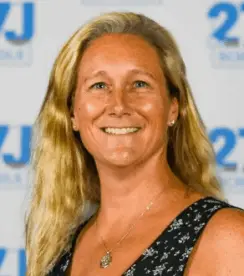 | 1 LU / HSW |
 | 1 LU / HSW |
Call to Action: Post-session, attendees will be able to use evidence-based design strategies to inform design ideas and decision-making conversations with future stakeholders. The community will be propelled forward, equipped with information about the capacity for environments to support human flourishing and reinvigorated with the knowledge of the potential for design to impact human outcomes, thereby reinforcing the urgent need for stewards of educational space and experience design to center the impact on the whole learner, the whole educator in design decisions.
Abstract: Flourishing is framed as the ultimate, student-centered measure of success for education. Scientific studies bring evidence to bear on the question of how humans find meaning and enjoyment in their relationship to the world surrounding them. Our senses lay the groundwork for how and why experiencing certain places can offer pathways to amplify health and well-being. Through the lens of designing learning environments for young learners, this session connects evidence to practice, to consider the conditions under which students and school communities can flourish. How can our built learning environments support and build human strengths, enhance well-being, and nurture creativity? The urge to play exists in all of us and is critical to cognitive development and emotional wellbeing. Designing environments that support play, engender creativity, nourish the senses, and foster social connection is imperative to impacting the lives of students and educators for years to come. Places and spaces which inspire a sense of wonder for students and educators alike are urgently needed as our built environments have a cumulative effect on our brains, and our experiences. Educators, Learning Space Designers, and Researchers will share perspectives on spatial strategies and typologies that can lay the foundation for flourishing by making meaning and inspiring creativity. Join us to engage in open dialogue at the end to discuss bridging pedagogy and architectural practice to create places where children learn, grow, and flourish.
Learning Objectives:


Adele joined Hord Coplan Macht in 1984 and leads the office’s practice for K-12 schools and during her 35+ years of experience, has worked with all levels of public schools throughout the state related to programming, master planning, and design of their facilities. She is passionate about designing high performing beautiful schools that meet the needs of 21st Century learners.

Sheri has a passion to provide students with opportunities to learn in a variety of ways and is dedicated to teaching skills which allows students to grow in their personal values to become better citizens. She has been in education for 30 years, as a leader at elementary, middle, and K-8 schools. Most of her experiences have been in K-8 schools, with a community of students who are connected to the school. BA – Behavioral Science from Metropolitan State University, MA – Early Literacy from CU Denver, MA – Multicultural Education from Regis University, Ed.D – Curriculum and Instruction with an emphasis on Gifted Education from DU.
Educational Visioning
Exhibits an understanding of best and next practices related to educational leadership, programming, teaching, learning, planning and facility design. Establishes credibility with educators, community members and design professionals while conceiving and leading a community-based visioning process. Demonstrates the ability to articulate the impact of learning environments on teaching and learning and uses that ability to facilitate a dialogue that uncovers the unique needs and long-range goals of an educational institution and its stakeholders – translating that into an actionable written/graphic program of requirements for the design practitioner.